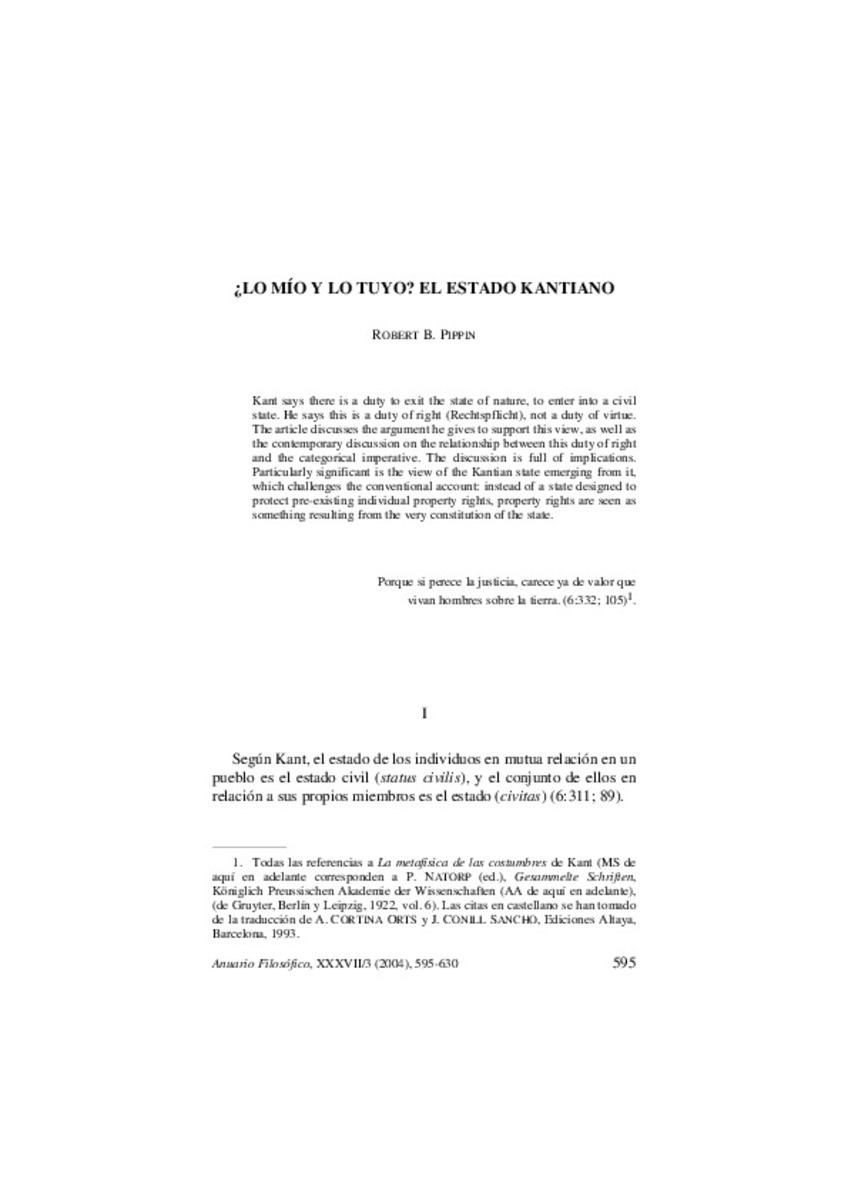Full metadata record
| DC Field | Value | Language |
|---|---|---|
| dc.creator | Pippin, R.B. (Robert B.) | |
| dc.date.accessioned | 2009-10-28T10:31:49Z | - |
| dc.date.available | 2009-10-28T10:31:49Z | - |
| dc.date.issued | 2004 | - |
| dc.identifier.citation | Anuario Filosófico, 2004 (37), 595 - 630 | es_ES |
| dc.identifier.uri | https://hdl.handle.net/10171/4574 | - |
| dc.description.abstract | Kant says there is a duty to exit the state of nature, to enter into a civil state. He says this is a duty of right (Rechtspflicht), not a duty of virtue. The article discusses the argument he gives to support this view, as well as the contemporary discussion on the relationship between this duty of right and the categorical imperative. The discussion is full of implications. Particularly significant is the view of the Kantian state emerging from it, which challenges the conventional account: instead of a state designed to protect pre-existing individual property rights, property rights are seen as something resulting from the very constitution of the state. | es_ES |
| dc.language.iso | spa | es_ES |
| dc.rights | info:eu-repo/semantics/openAccess | es_ES |
| dc.subject | Kant, Immanuel | es_ES |
| dc.subject | estado | es_ES |
| dc.subject | naturaleza | es_ES |
| dc.subject | civil | es_ES |
| dc.title | ¿Lo mío y lo tuyo? El estado kantiano | es_ES |
| dc.type | info:eu-repo/semantics/article | es_ES |
| dc.identifier.doi | 10.15581/009.37.29364 | es_ES |
Files in This Item:
Statistics and impact
Items in Dadun are protected by copyright, with all rights reserved, unless otherwise indicated.






